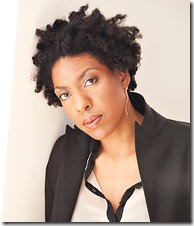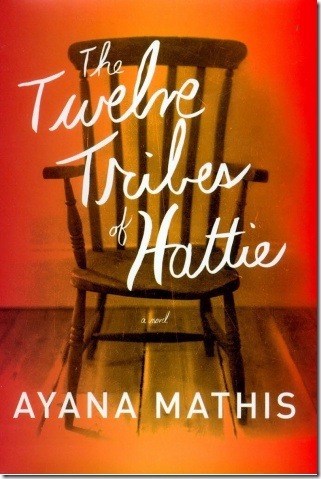Ayana Mathis was stunned when Oprah Winfrey called recently to say that she had selected Mathis’s debut work of fiction, The Twelve Tribes of Hattie, as her next book club selection.
Mathis’s well-crafted first novel tells the story of Hattie Shepherd, a teenager who leaves Georgia in 1923 and heads north to Philadelphia in search of a better life. Hattie and her lazy, philandering husband, August, eventually bear 11 children and have one grandchild, hence the book’s title.
In successive chapters Mathis offers compelling portraits of Hattie’s children and the difficulties they encounter growing up ignored, mistreated and desperately poor.
Reflecting on her own shortcomings, Hattie “knew her children did not think her a kind woman – perhaps she wasn’t, but there hadn’t been time for sentiment when they were young. She had failed them in vital ways, but what good would it have done to spend the days hugging and kissing if there hadn’t been anything to put in their bellies.”
In a tender opening chapter, Hattie struggles to save her newborn twins, Philadelphia and Jubilee, who quickly succumb to tuberculosis.
Years later another son tours the South as a struggling musician and closeted gay man. A brother heads South to serve as a preacher in tent revivals, where he is met with disbelief and awe because he is only 15.
A third boy – a gambler and a drunk ― enters military service and is sent to Vietnam. A daughter is hospitalized with mental illness. And Hattie, despite doubt, anguish and much wailing, gives her youngest daughter to a childless sister so the girl can have a better life.
The story of Hattie’s clan excels on many levels. Pitch-perfect dialogue lassoes the reader. Mathis also has a firm grasp of culture, family dynamics and addiction. Her descriptions of marriage, cheating, race, gambling and loss are notable for their verisimilitude.
The book offers a vivid reminder of Jim Crow racism that infected the nation like a deadly poison. When Hattie and her sisters board a train to leave Georgia in 1923, many Southern stations lack “Negro bathrooms,” so blacks are forced to relieve themselves outdoors. “Hattie couldn’t go for the shame of it.”
 Life was filled with daily humiliation, such as the unspoken requirement that blacks step into the street when a white person approached.
Life was filled with daily humiliation, such as the unspoken requirement that blacks step into the street when a white person approached.
Mathis graduated from the Iowa Writers’ Workshop, where her teacher was the highly regarded novelist Marilynne Robinson.
One savors Mathis’s gorgeous writing. She describes a singer at a revival, “She was a pillar of a woman, so thick and round a car couldn’t knock her down. The song came out of her like a foghorn blast from the ships down at the Navy Yard in Philadelphia – that big and effortless. A tambourine shook, but the woman’s voice dwarfed all other sound. It flowed out of the tent and rumbled down the red-dirt road and through the trees, it roused the birds and made the stones tremble.”
The novel spans several decades in the turbulent life of Hattie’s tribes, as it moves back and forth from past to present, through episodes of lost love, hardship and cheating. One of Hattie’s daughters gets emotional satisfaction dating a man who had been her mother’s paramour.
Despite their mutual cheating and emotional distance, Hattie felt intense sexual attraction to her philandering husband. “It had confounded and humiliated her for the thirty years of their marriage,” Mathis writes. “These endless pregnancies. And worse, her body’s insistence on a man who was the greatest mistake of her life. She was only fifteen when they met. Too young to understand that getting her alone at his brother’s house was all August wanted from their courtship.”
Mathis has given us a compelling story, told in spare, memorable prose. Readers can look forward to more fiction from this new writer, who already has proved to be a bright light on the literary horizon.
The Twelve Tribes of Hattie, by Ayana Mathis; Knopf, 243 pp., $24.95
Bill Williams is a freelance writer in West Hartford, Conn., and a former editorial writer for The Hartford Courant. He is a member of the National Book Critics Circle and can be reached at billwaw@comcast.net.
